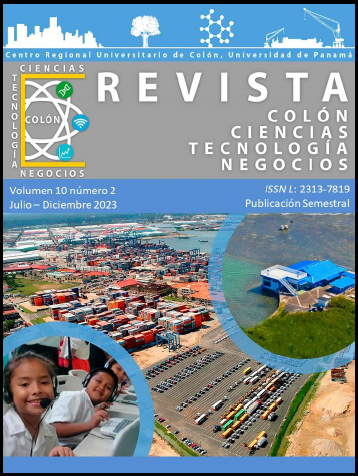

Copyright (c) 2023 Revista Colón Ciencias, Tecnología y Negocios

This work is licensed under a Creative Commons Attribution-NonCommercial-ShareAlike 4.0 International License.
The Panamanian Cooperative System comprises over 210,000 skilled associates in 479 cooperatives nationwide. Although the system has experienced consistent growth in recent years and contributes up to 4% of the country's gross domestic product, but only a few cooperatives have achieved competitive success. This study was conducted to determine the factors that affect the competitive success of savings and credit cooperatives in Panama. The goal is to help directors and managers of other cooperative companies improve their position in the market. The research used a quantitative approach, with a correlational non-experimental design, to collect data from 63 savings and credit cooperatives in Panama through a survey aimed to managers and administrators. The questionnaire consisting of 32 questions gathered information on factors that empirical evidence suggests affect competitiveness, such as size, technology and investment, financial structure, quality, and associativity. The collected data was analyzed through ordinal regressions using SPSS, and the results showed that economic performance has a significant correlation with science, technology and innovation; training; self-control; transparency: external financing; reserves; and personnel. The test's p-value (Sig.) is less than 0.05, meaning the null hypothesis and the Pseudo R square Nagelkerke are rejected.